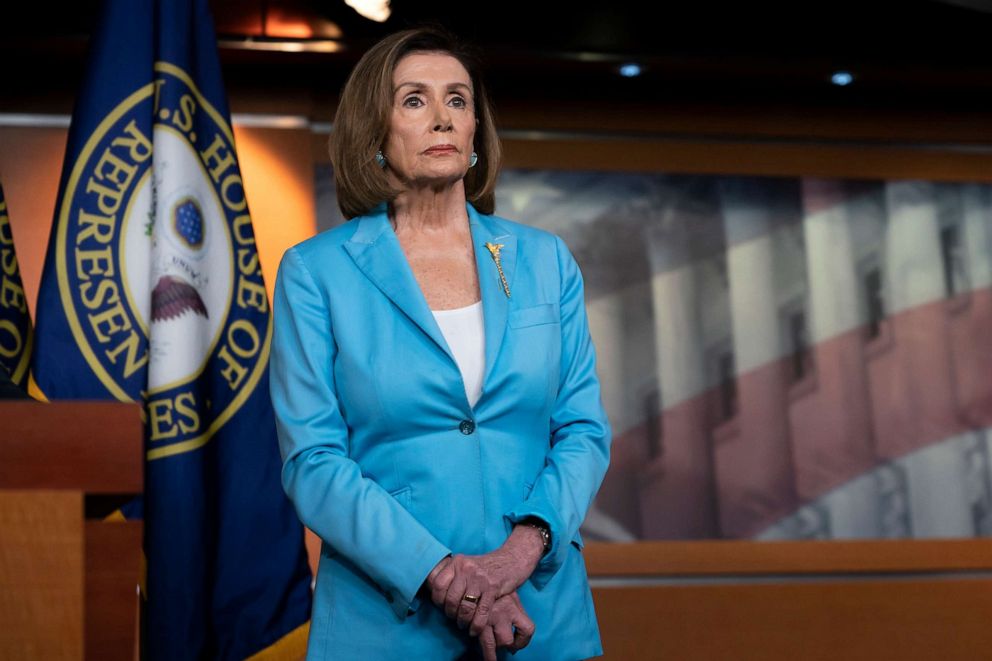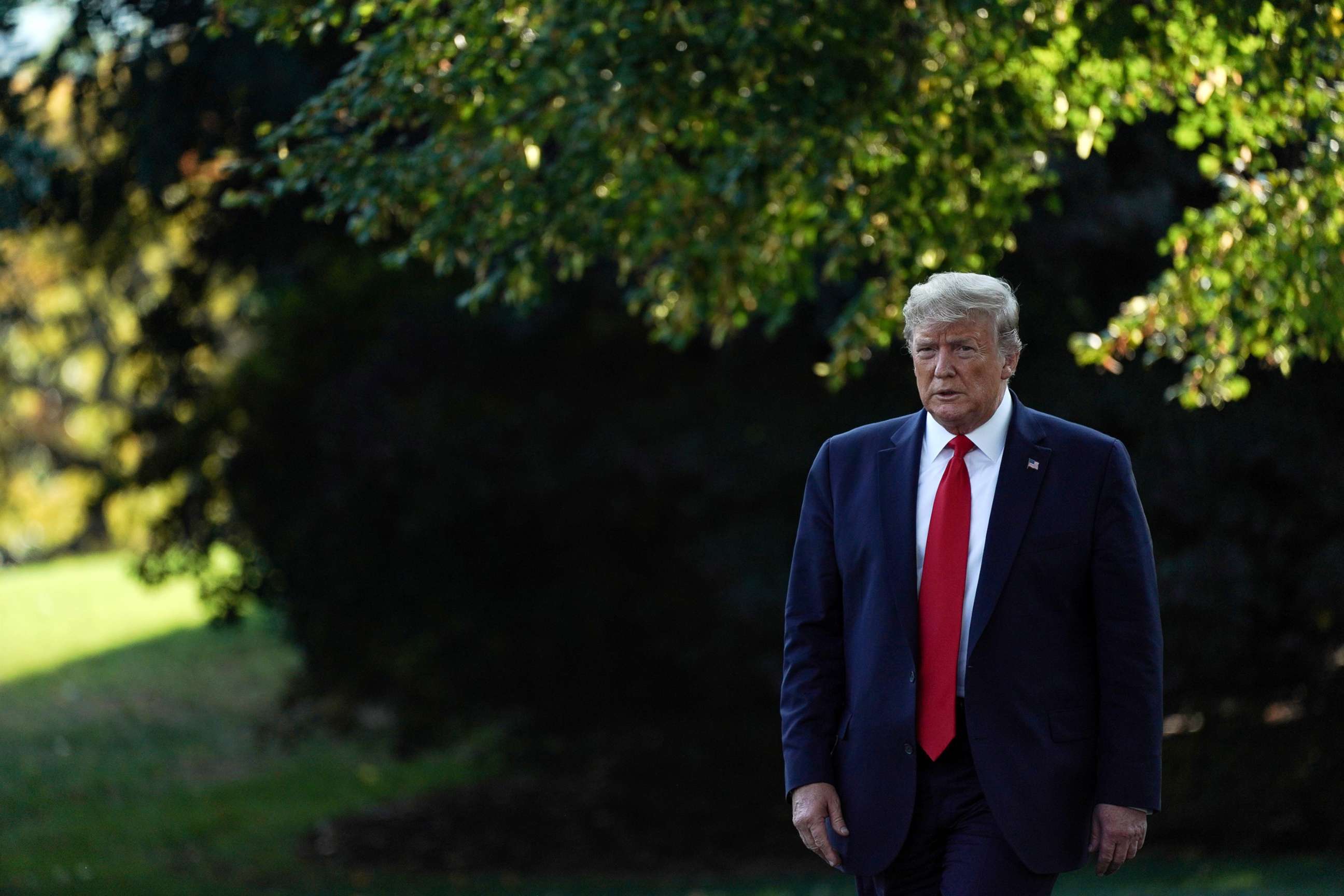'Cannot be expected to participate in' impeachment inquiry: White House to House Speaker Nancy Pelosi
Democrats have requested testimony, documents as part of an impeachment inquiry
The White House sent a letter to House Speaker Nancy Pelosi on Tuesday calling into question what it referred to as "points of irregularity in the investigation."
In the letter, attorneys for the White House write to House Democrats that, "Given that your inquiry lacks any legitimate constitutional foundation, any pretense of fairness, or even the most elementary due process protections, the Executive Branch cannot be expected to participate in it."
Among the arguments, the White House raised concerns that House Republicans are unable to call witnesses as part of the growing impeachment inquiry into President Donald Trump. In almost all congressional proceedings, the rules are set by the majority party including calling of witnesses and hearings.
However, the letter stopped short of demanding Pelosi call a vote of the House.
She responded with a statement on Tuesday night.
"This letter is manifestly wrong, and is simply another unlawful attempt to hide the facts of the Trump Administration's brazen efforts to pressure foreign powers to intervene in the 2020 elections," Pelosi wrote in her statement. "Despite the White House's stonewalling, we see a growing body of evidence that shows that President Trump abused his office and violated his oath to 'protect, preserve and defend the Constitution.'"

Democratic leaders of several House committees have been issuing requests and subpoenas calling for documents and testimony from several administration and State Department officials as part of their ongoing investigation into whether or not to bring articles of impeachment against the president. The impeachment efforts were spurred by a whistleblower complaint about a conversation between Trump and Ukraine President Voldymyr Zelenskiy which alleged improper conduct by the president.
The Trump administration has been actively blocking testimony since the start of the probe.
House Democrats issued subpoenas for Secretary of State Mike Pompeo and five other State Department officials in late September requesting documents related to the department's role in facilitating meetings between Rudy Giuliani, the president's personal attorney, and Zelenskiy. Pompeo responded to the request in a letter stating his intention to block the testimony.
Despite Pompeo's objection, Kurt Volker, the former special envoy for Ukraine, was deposed behind closed doors last week. Republicans have cited the committee's failure to release the entirety of Volker's testimony as a reason they oppose further depositions taking place.
In response to Pompeo, Democratic Chairmen Adam Schiff, Eliot Engel and Elijah Cummings wrote that "the failure of any of these Department employees to appear for their scheduled depositions shall constitute evidence of obstruction of the House’s impeachment inquiry."
Giuliani is also the subject of a subpoena for documents, which he was compelled to produce to Congress by Oct. 15. He has not yet responded to the subpoenas and cited "substantial constitutional and legal issues" that must be considered before he decides how to respond.

And earlier Tuesday, Gordon Sondland, the U.S. ambassador to the European Union, was blocked from appearing for voluntary testimony, prompting House Democrats to announce that they would issue a subpoena for his testimony and documents.
Read the White House letter to Pelosi:
ABC News' John Parkinson and Trish Turner contributed to this report.




